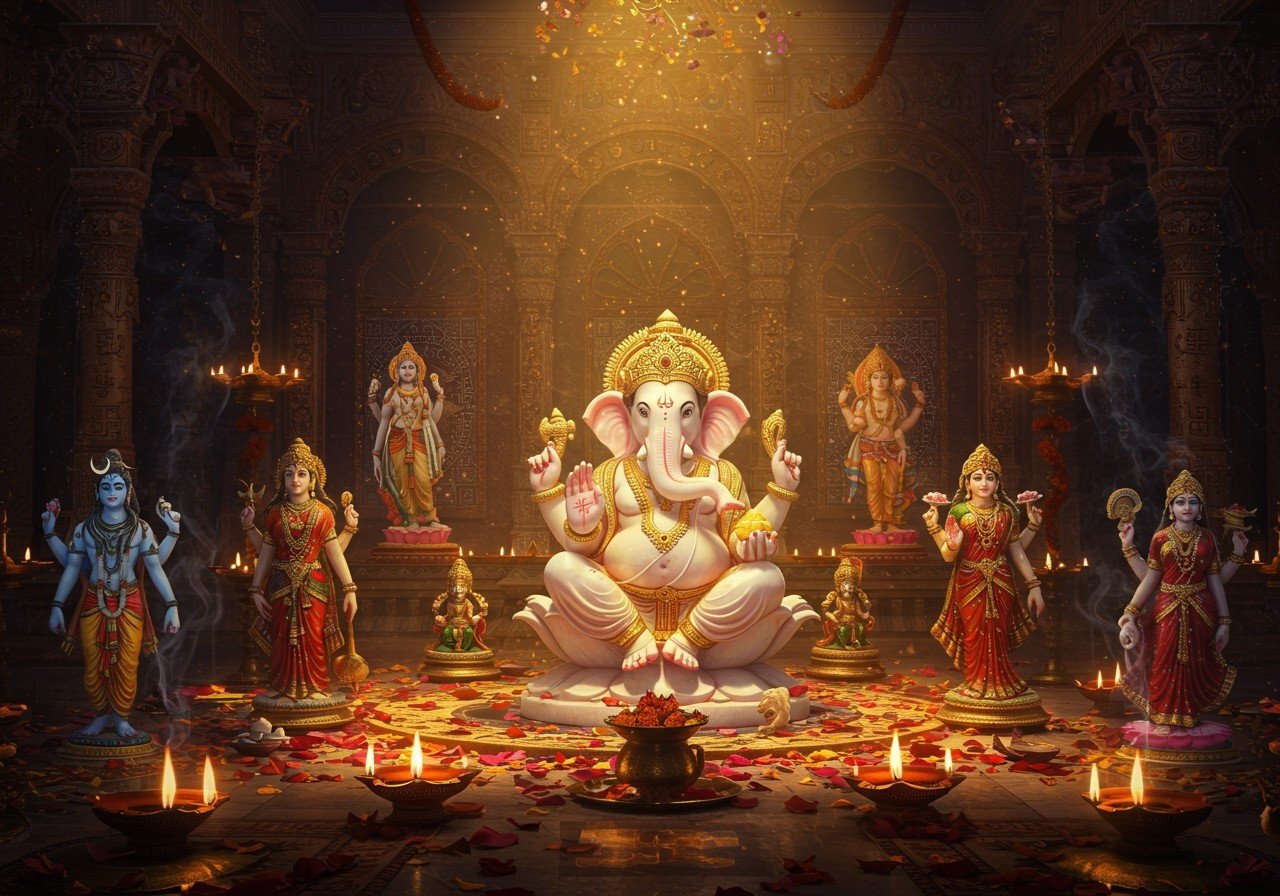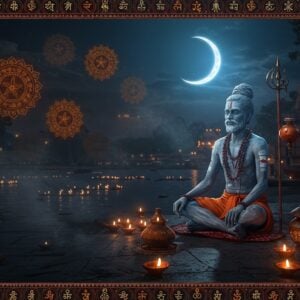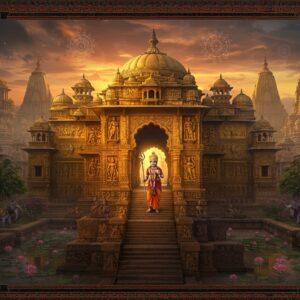
In Hinduism, idol worship, a practice spanning millennia, acts as a link between devotees and the divine, giving form to abstract spiritual concepts. Idols hold a revered place in many Indian homes, integral to daily life and festivals. The artistry of these idols often reflects India’s rich regional cultural heritage.
Historical Context and Evolution
The tradition of idol worship boasts a rich history, tracing back to the Indus Valley Civilization and evolving through the Vedic period. Shaped by dynasties and local customs, it initially involved small personal idols, later transitioning to elaborate temple deities. Philosophical movements like Bhakti and Tantra further emphasized idols in personal devotion and spiritual evolution.
Significance of Idols
Idol worship is deeply ingrained in Hinduism, offering a tangible divine connection. Scriptures like the Bhagavad Gita and Upanishads position idols as more than mere symbols; they embody divine presence. Through ‘Prana Pratishtha’, a sacred ritual, the deity’s energy is invoked, transforming the idol into a living entity.
Idols aid focus during meditation and prayer, serving as anchors for spiritual contemplation, offering comfort and fostering concentration. Worshippers often find peace and fulfillment through these practices.
Beyond personal devotion, idol worship strengthens community bonds. During festivals and gatherings, idols become central, uniting people in celebration and devotion. Shared rituals and offerings create a sense of unity and spiritual connection.
Why Hindus Worship Shivling
The Shivling holds unique significance, symbolizing Lord Shiva and representing the cosmic pillar of light, uniting masculine and feminine energies. Interpretations vary across India, reflecting regional beliefs and traditions.
Shivlings are worshipped with rituals and offerings like milk, water, and flowers, facilitating a deep connection with Shiva’s transformative energy. Pilgrimages to major Shivling sites underscore their importance in spiritual journeys.
Idols in Rituals and Festivals
Idols are central to Hindu rituals, from daily puja to grand festivals. During Diwali, Durga Puja, and Ganesh Chaturthi, idols are adorned, and communities gather, expressing gratitude and seeking blessings.
Offerings, or prasadam, hold symbolic meaning, shared among devotees as divine grace. Environmental concerns regarding idol immersion have led to a rise in eco-friendly materials, ensuring responsible continuation of traditions. Consider exploring our collection of eco-friendly Ganesha idols for your upcoming Ganesh Chaturthi celebrations. Shop Now
Personal Connection with Idols
For many, idols represent a personal deity or ‘Ishta Devata’, guiding their spiritual path. This intimate connection allows for expressing devotion and seeking guidance. Devotees often share stories of miracles and personal experiences attributed to their faith.
Idols also promote mindfulness during prayer and meditation, aiding focus on spiritual goals. This personal aspect enriches the spiritual journey, providing solace and clarity amidst life’s challenges. At poojn.in, we offer a diverse range of idols to help you connect with your chosen deity. Browse our collection and find the perfect murti for your spiritual practice.
Hindu Deities: A Diverse Pantheon
Hinduism encompasses a rich tapestry of gods and goddesses, reflecting its diverse traditions. These deities, referred to as Deva, Devi, Ishvara, Ishvari, Bhagavan, and Bhagavati, embody various aspects of the divine. Hindus hold diverse beliefs, encompassing polytheism, pantheism, monotheism, monism, agnosticism, atheism, and humanism.
- Brahma: The creator god, part of the Trimurti, with four faces representing the four Vedas. While his creator role is sometimes considered complete, his significance remains tied to knowledge and creation. His consort is Saraswati, the goddess of knowledge and wisdom.
- Vishnu: The preserver, also part of the Trimurti, maintains Dharma and cosmic order. He incarnates in various forms, like Rama and Krishna, restoring balance. His consort, Lakshmi, embodies wealth, purity, and auspiciousness, also incarnating as Sita, Radha, and Rukmini. Find beautiful Vishnu and Lakshmi idols on poojn.in to enhance your home altar. Explore our collection.
- Shiva: Completing the Trimurti, Shiva represents destruction, transformation, and the cycle of life and death. As the source of both good and evil, his consort, Shakti (Parvati), helps maintain balance. He is often depicted with iconic symbols like the third eye, cobra necklace, vibhuti, and trident.
- Saraswati: The goddess of knowledge, music, and arts, embodies wisdom and inspires creativity. As Brahma’s consort, she represents the power of learning and artistic expression.
- Lakshmi: The goddess of wealth, fortune, and auspiciousness, is Vishnu’s consort and symbolizes prosperity and purity.
- Parvati: The goddess of love, devotion, and fertility, is Shiva’s consort, representing the nurturing and compassionate aspects of the divine feminine.
- Durga: A powerful mother goddess embodying the combined strength of all gods, she is a fierce protector and symbol of feminine power.
- Ganesha: The elephant-headed god, son of Shiva and Parvati, bestows good fortune and wisdom. He is invoked before new beginnings. Celebrate Ganesh Chaturthi with authentic Ganesha idols from poojn.in. Find your perfect Ganesha murti here.
- Hanuman: The devoted monkey god, known for his strength, loyalty, and role in the Ramayana, symbolizes devotion and service.
- Krishna: The deity of love and compassion, often depicted with a flute, is a central figure in the Bhagavad Gita, teaching about dharma and devotion. Explore our collection of Krishna idols to bring his divine presence into your home. Shop Now
- Agni: The god of fire, acts as a messenger between humans and gods, playing a central role in Hindu ceremonies.
- Surya: The Sun god, a warrior on a chariot pulled by seven horses, represents healing and life-giving energy.
These deities represent facets of Brahman, the ultimate reality, making the divine accessible and relatable.
Conclusion
Idol worship in Hinduism is a cherished tradition, bridging the human and divine. Idols symbolize faith, embodying deities, and fostering spiritual growth. Through rituals, meditation, and prayer, they become living entities, offering comfort and focus. These practices enrich individual journeys and strengthen community bonds. The shift toward eco-friendly practices ensures responsible preservation of these traditions.


